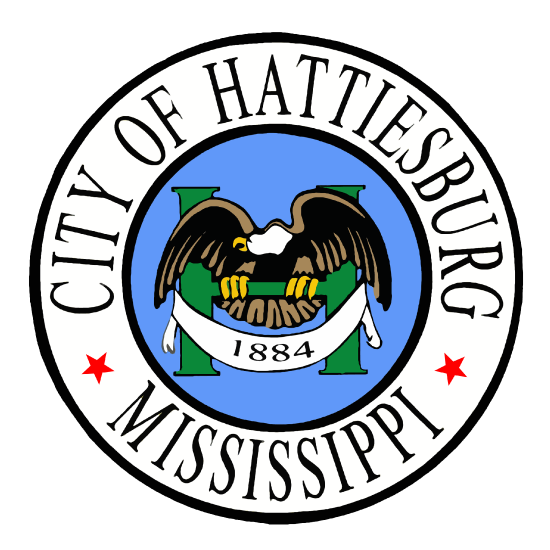Hattiesburg, Mississippi – Hundreds of people gathered today at the Forrest County Courthouse in downtown Hattiesburg to witness the historic dedication of a bronze statue honoring the life and legacy of Civil Rights leader and Forrest County native Vernon F. Dahmer, Sr.
Selected as the statue’s permanent site for its historical significance, the Forrest County Courthouse grounds were where African Americans stood to fight for their right to vote during the 1964 Freedom Summer, nearly 60 years ago. The statue and wall inscribed with Dahmer’s mantra “If you don’t vote, you don’t count,” will forever memorialize his life’s work and serve as a testament of equal rights for all.
“Mr. Vernon Dahmer, Sr. represented the virtues our community holds most valuable – courage, compassion, and activism. This statue will now permanently mark his heroic determination and celebrate that each and every person has the right to count. It is our honor to be a part of this historic dedication,” David Hogan, Forrest County Board of Supervisors President, said.
Dahmer, a farmer, businessman, and Civil Rights leader, was killed defending his home and family on Jan. 10, 1966. A well-respected leader in the community, he ran a successful family-owned grocery store, served twice as president of the local NAACP chapter, fought for civil rights for African Americans, led voter registration drives, and publicly offered to pay poll taxes for anyone who wanted to register to vote but could not afford it.
“Never as a child growing up in Jasper County did I imagine I’d be standing here today. Mississippi has changed. The statue of my husband Vernon Dahmer is proof of this,” Ellie Dahmer, widow of Dahmer, said. “My family and I are grateful for everyone that made this day a reality. Remember elections have consequences and let’s remember to vote.”
Led by the Forrest County Board of Supervisors, the concept for the statue and memorial began nearly four years ago. Since then, a committee of Dahmer family members, local delegates, and community leaders brought the project to life. It was at the Forrest County Courthouse that Dahmer joined other Civil Rights leaders during the 1964 Freedom Summer Day, which was 56 years ago this month. In 1998, history was made again when the Dahmer family received justice after Klansmen were convicted for Dahmer’s murder.
“Today’s unveiling is one of honor, gratitude and hope for our community as we remember Mr. Dahmer’s lifelong impact as a Civil Rights leader,” said Hattiesburg Mayor Toby Barker. “A core value of the City of Hattiesburg includes telling our story, with a deep obligation to remember those who have valiantly come before us and to educate future generations. Mr. Dahmer’s statue will forever be an opportunity for us to go beyond textbooks and newspapers – to embrace how civic engagement and unwavering belief can change the course of history.”
Sculptor Ben Watts and Hattiesburg artist Vixon Sullivan worked together for more than 10 months on the statue. Watts is a nationally recognized sculptor from Columbus, Miss., whose works include Mississippi author Eudora Welty, football legend Walter Payton, and an installation at the world-renowned Ryman Auditorium in Nashville.
“When I pass this statue, I will salute to a man who selflessly served. This sculpture, to me, represents the power of an individual with a mission of the heart. This is a call to action to live like Vernon Dahmer, Sr. He is a local hero,” Sullivan said. “This is a reminder to stand on the right side of history, where there is equality and every voice can be heard.”
Dahmer’s contributions during the national Civil Rights Movement are highlighted at the Mississippi Civil Rights Museum in Jackson. This new statue is also a stop on the self-guided 1964 Freedom Summer driving and audio tour in Hattiesburg. Trail participants can hear the Dahmer family’s story told by Ellie Dahmer as she recounts that fatal night.
MORE ABOUT DAHMER
Vernon F. Dahmer, Sr. (1908 – 1966) and his wife, Ellie, had been receiving death threats for their voter registration efforts. On the night of Jan. 10, 1966, they awoke to the sound of shotgun blasts and breaking windows, where open containers of gasoline were being thrown into their home. The house erupted in flames. Ellie and the couple’s children escaped while Dahmer defended the home, but he was severely burned and later died in a hospital.
Finally, in 1998, the state of Mississippi received new evidence to convict the Ku Klux Klan leader responsible for ordering Dahmer’s death and the assault on his family. That trial took place at the Forrest County Courthouse.
Vernon F. Dahmer, Sr. is remembered for his leadership, and the Dahmer family continues to honor his legacy through community involvement and activism.
MORE ABOUT 1964 FREEDOM SUMMER
Freedom Summer was the 1964 voter registration drive that took place all over the state of Mississippi, with Hattiesburg serving as the largest Freedom Summer area in the state. It helped awaken the consciousness of the nation as Americans watched what happened on nightly news programs and read reports in the daily papers.
With a focus on increasing black voter registration, Freedom Summer workers included white volunteers from out-of-state and many participants from the Hattiesburg area, totaling more than 4,000 volunteers during the two-month period.
Hattiesburg is home to the largest 1964 Freedom Summer Trail, which includes 16 stops with audio clips featuring oral histories from those who participated in the Civil Rights Movement.
##
News release originally appeared here.















